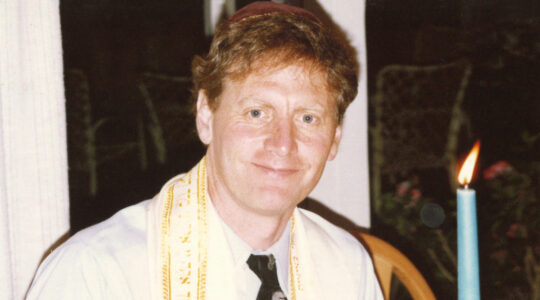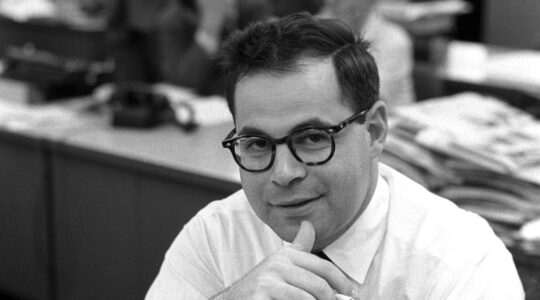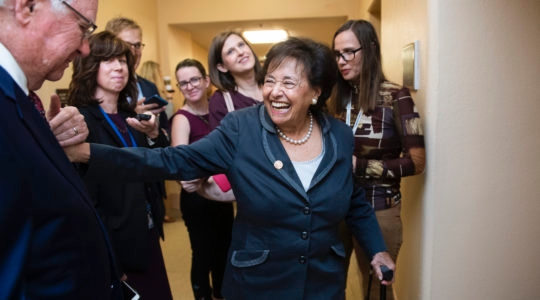WASHINGTON (JTA) — Michael Stein, a co-founder of the influential Washington Institute for Near East Policy, has died.
Stein died Nov. 7, one day before his 88th birthday, the think tank said in a news release.
“Mike was a giant — a man of great ideas, boundless energy and profound devotion to principle,” the institute’s current chairman, Howard Berkowitz, and president, Martin Gross, said in the release. “His passing is a grievous loss to us all.”
Stein, who co-founded the institute with Barbi Weinberg, served eight years as its president and six more as its chairman. Stein and Weinberg had been involved in the American Israel Public Affairs Committee. The institute’s founding director, Martin Indyk, now the top U.S. Middle East peace negotiator, was a former AIPAC staffer.
The think tank now has ties with figures in the U.S. and Israeli governments and features well-known experts not only on the Arab-Israeli conflict, but on Turkey and Iran policy, among other fields.
Since the early 2000s, Stein has held the title of chairman emeritus. The institute named both its flagship program on counterterrorism and intelligence and its annual lecture by a senior administration policymaker in his honor.
Stein also was involved in many civic and charitable organizations in New York, Florida and Israel, including The Hebrew University of Jerusalem, Long Island Jewish Medical Center, AIPAC, the Anti-Defamation League, the Palm Beach Country Club and the Civic Association of Palm Beach.
The Harvard University graduate was the medical care commissioner for the town of Palm Beach and served as treasurer of the Village of Kings Point, N.Y.
“It was my great privilege to work closely with Mike throughout my 28 years with this organization; he was mentor, advisor, confidant, and friend,” said Robert Satloff, the institute’s director. “No one lived the battle of ideas about U.S. Middle East policy more passionately than he did.”
JTA has documented Jewish history in real-time for over a century. Keep our journalism strong by joining us in supporting independent, award-winning reporting.





